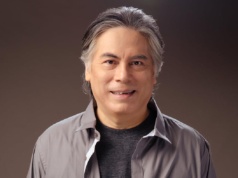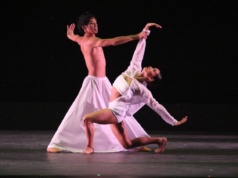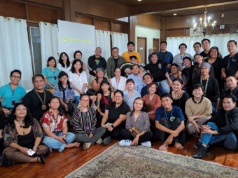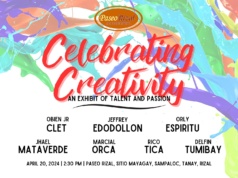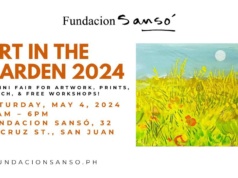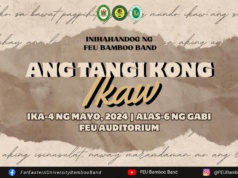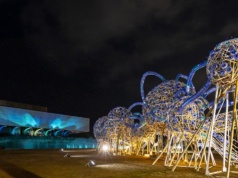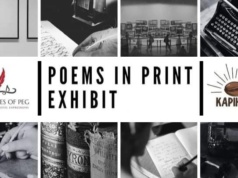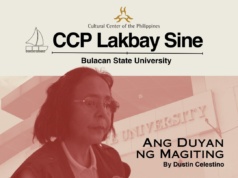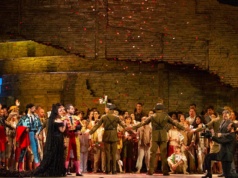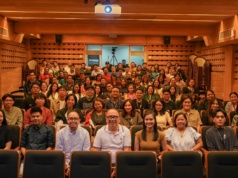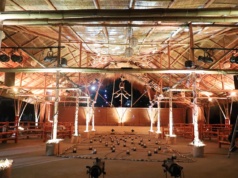
Prince Claus Awards honour the outstanding achievement of visionaries at the front-line of culture and development. In 2014, Lav Diaz was also awarded the Prince Claus Awards.
The Prince Claus Awards honour outstanding achievements in the field of culture and development. The awards are presented annually to individuals, groups and organisations whose cultural actions have a positive impact on the development of their societies.
In keeping with the Prince Claus Fund’s guiding principles, the awards highlight significant contributions in regions where resources or opportunities for cultural expression, creative production and preservation of cultural heritage are limited.
Kidlat Tahimik (1942, Baguio City) is a self-described ‘Kultur Warrior’, artist in many disciplines, and a creative force in his community – his name means ‘quiet lightning’ in the Tagalog language. Always using a low-budget DIY ethic, his work ranges from engaged performance to free-style architecture and carved installations. But it all started with film. While working as an economic researcher in Paris, he tore up his MBA diploma and quit his job. He joined a Bavarian artist’s commune where, helping a film student, he learned to shoot a 16mm camera. Deeply inspired, he poured his heart and soul into his first film, Perfumed Nightmare (1977). A fictionalised version of his own dream trip to the West and disenchantment, it is a satirical critique of ‘undeveloped’ nations’ obsession with the ‘overdeveloped’ West. It won awards at international festivals and was Kidlat’s turning point back towards the Philippines.
An enthusiastic advocate of indigenous culture, Kidlat built a hut in an Ifugao tribe village where he taught villagers to document their culture. With his wife Katrin, Kidlat organises conferences with indigenous peoples from around the world. His subsequent films include: Why is Yellow Middle of Rainbow? (1980-94, aka I am Furious Yellow), a father-and-son chronicle of joyfully surviving the Philippines’ 1980s revolution and natural catastrophes; Turumba (1983) on the impact of Globalisation and Western religions on village families and crafts; and BalikBayan#1 or Memories of Overdevelopment Redux III (2015), a revisionist historical drama about Enrique, Magellan’s indigenous slave and technically the first person to circumnavigate the globe. A passionate supporter of independent cinema, Kidlat returned his Lifetime Achievement award to protest Cinemalaya Philippine Independent Festival’s decision to merge the section for debutante filmmakers with veteran cineastes.
Co-founder of the Baguio Arts Guild (1986), Kidlat mentors and teaches young creatives through workshops and community projects. He has designed and built two highly imaginative, non-profit art centres. The Victor Oteyza Community Art Space is an energy hub encouraging talent through all-expenses-paid exhibitions, performances and live music funded by the proceeds of its popular restaurant/café. The Ili Likha Artists Watering Hole, an ecology oasis which hosts artists’ studios, galleries, and a café, is centred on a free cinema, created in the form of a ship, which shows independent films. Like Kidlat’s films, these centres had no blueprint. They were constructed organically by local craftsmen using recycled found materials to create striking and delightful community spaces.
Since 1998, Kidlat and his Ifugao mentor Lopes Nauyac revived an ancient rice terraces ritual— the Pun-nuk. It is an annual thanksgiving to the Gods for the gift of rice. UNESCO in 2016 inscribed Pun-nuk to its list of Intangible Culture Heritage (ICH).
Kidlat Tahimik is honoured:
- for his holistic, free-spirited and joyfully rebellious approach and lifetime commitment to independent creativity;
- for his charismatic role as a catalyst and thought leader inspiring people to tap into their own inner spirit;
- for his innovative works in multiple fields that reject imposed conventions in favour of an ingenious, pragmatic and environmentally aware DIY ethos and aesthetic;
- for his vital and compelling filmmaking showing how to condemn and fight injustice while living joyfully;
- for his commitment to Philippine culture and pro-indigenous activism, creatively resisting cultural imperialism and showing that local ways and knowledge are a rich resource; and
- for his deep social engagement and generosity in doing whatever he can to change things for the better, building infrastructure, sharing his gifts and creating spaces of freedom.
Source: Prince Claus Fund for Culture and Development

